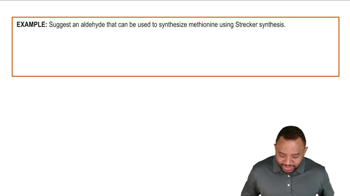Predict the major product at the end of each sequence.
(b)

 Verified step by step guidance
Verified step by step guidance Verified video answer for a similar problem:
Verified video answer for a similar problem:



 2:49m
2:49mMaster Aromatic synthesis starting with benzene/benzene derivatives with a bite sized video explanation from Johnny
Start learning